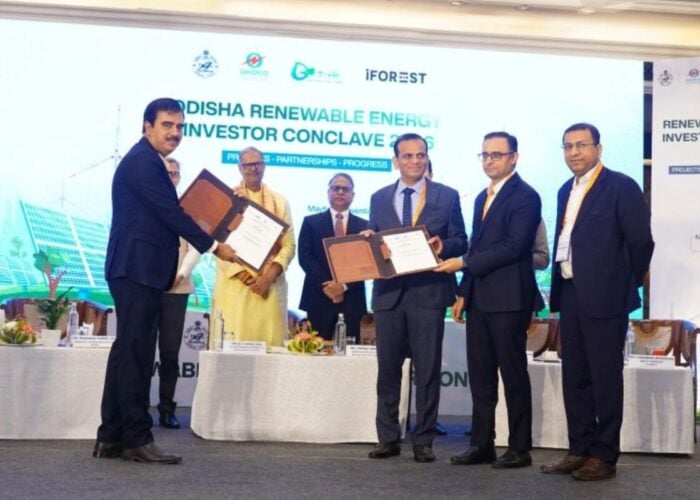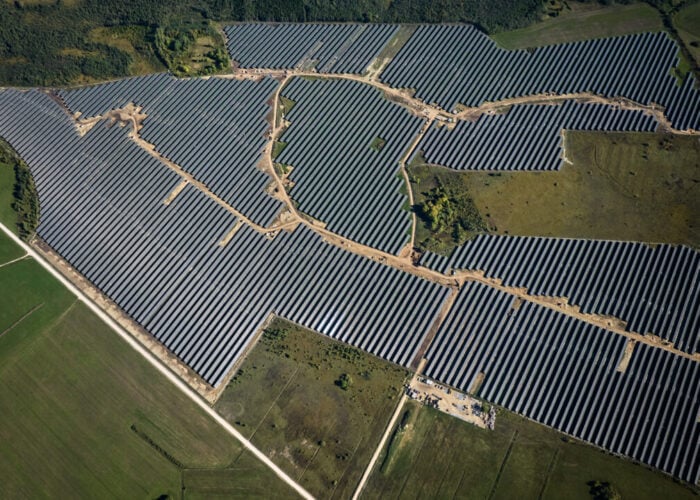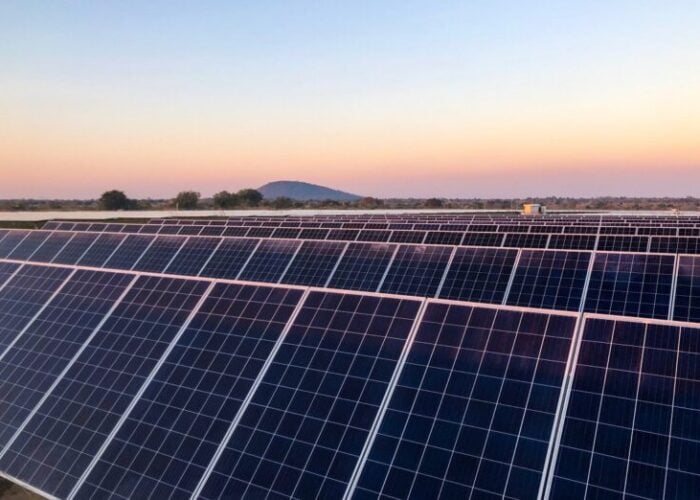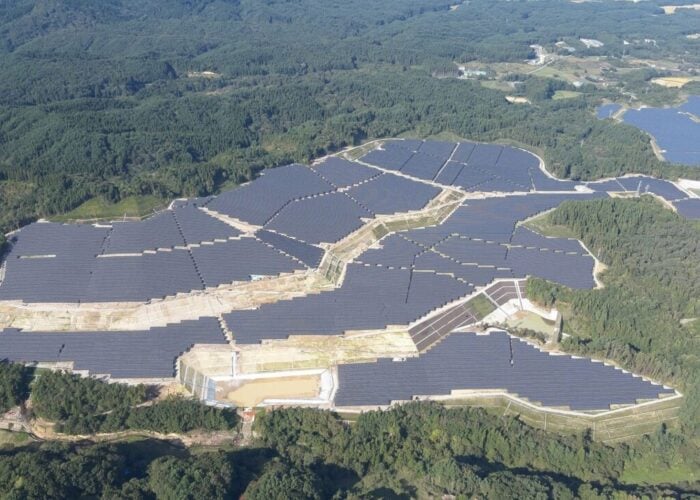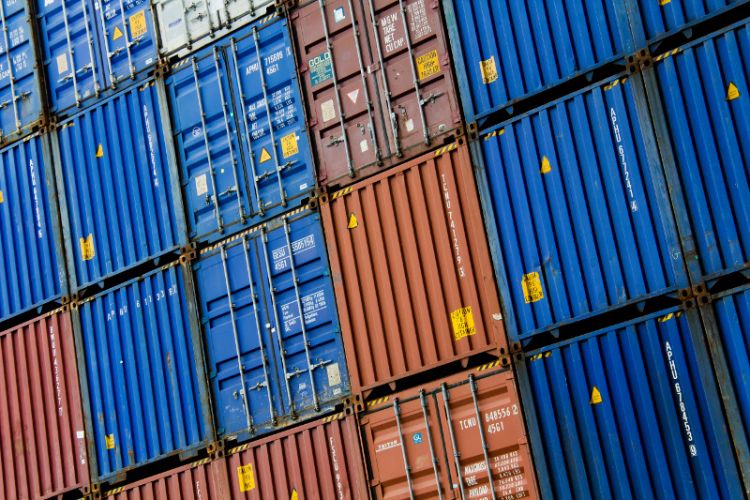
The US International Trade Commission (ITC) has voted unanimously to impose antidumping and countervailing duty (AD/CVD) tariffs on solar cells imported from four Southeast Asian countries.
The ruling confirms that steep tariffs issued by the Department of Commerce (DOC) on crystalline silicon solar cells from Malaysia, Thailand, Vietnam and Cambodia will be imposed, as the ITC has found that the investigated companies have caused material injury to US businesses.
Try Premium for just $1
- Full premium access for the first month at only $1
- Converts to an annual rate after 30 days unless cancelled
- Cancel anytime during the trial period
Premium Benefits
- Expert industry analysis and interviews
- Digital access to PV Tech Power journal
- Exclusive event discounts
Or get the full Premium subscription right away
Or continue reading this article for free
The investigation was brought in April 2024 by the American Alliance for Solar Manufacturing Trade Committee, a group comprising solar manufacturers with US bases: Korean-owned firms Qcells and Mission Solar, Swiss-headquartered Meyer Burger, REC Silicon and cadmium telluride (CdTe) thin-film solar manufacturer First Solar.
The group’s legal representative, Tim Brightbill, emphasised the sense of victory in the ITC ruling.
“Today’s vote leaves no doubt: these Chinese-headquartered companies have been violating trade laws by overwhelming the US market with unfairly cheap, dumped and subsidised solar panels – and they continue to do so from third-party markets around the world, undermining US industrial strategy and stunting new investment,” Brightbill said.
“This cannot stand. Our growing American industry deserves – and now will have – the chance to compete fairly.”
US AD and CVD tariffs target different things. AD investigations refer to price “dumping”, where Chinese-backed solar manufacturers are alleged to have sold products at unfairly low prices in US markets to undermine domestic industry. CVD rates address export subsidies supplied by foreign governments for products entering the US.
The tariff rates in this case vary dramatically, from dizzying rates of over 3,500% on selected Cambodian manufacturers to double-digit figures on some Malaysia-based operations. Many of the highest rates were found “based on facts available with adverse inferences”, which often means that data was unavailable or that a company failed to comply with the US DOC’s investigation.
In the case of Cambodia, where certain companies received a 3,521.14% tariff rate, two firms publicly informed the DOC that they lacked the resources to continue in the investigation but insisted that this was “in no way” an acknowledgement of the allegations in question.
The DOC will issue the AD and CVD orders on 9th June, with the tariffs due to take effect on 16th June, from which point US customs will begin to collect duties on incoming products.
In August 2024, the petitioning Alliance in the case sought a ruling on “critical circumstances”, which would see tariffs applied retroactively on products containing solar cells from the four Southeast Asian countries.
A ‘decisive victory’ for US manufacturing?
Brightbill said that the tariff rates issued by the DOC in April were a “decisive victory for American manufacturing,” and proponents of the AD/CVD case have emphasised its potential to level the playing field for US producers against low-priced imports.
Earlier this month at the Intersolar Europe expo in Munich, PV Tech heard from leading Chinese manufacturers implicated in the AD/CVD case that the tariffs have left some Southeast Asian solar manufacturing capacity dormant, as the facilities are no longer profitable and were mainly established to serve US market demand.
However, protectionist measures are not a silver bullet to support US solar PV manufacturing.
Shortly after the case was brought, industry analyst Clean Energy Associates (CEA) forecast that an AD/CVD case on silicon solar cells could increase the price of US-made solar modules by US$0.10/watt and imported products by US$0.15/watt.
In part, this is because the US industry lacks domestic cell production capacity to meet its growing module assembly abilities. Prior to this case, the vast majority of the cells supplying US module assembly plants came from Southeast Asia. CEA also forecast a “bottleneck” in cell supply as a result of AD/CVD tariffs.
Moreover, political attacks have mounted against the domestic US tax incentives for solar manufacturing. Proposed changes to the Inflation Reduction Act (IRA) tax credit system announced last week could introduce damaging uncertainty to the US solar manufacturing industry, the implications of which PV Tech Premium analysed in a piece today.
In response to this ITC ruling, Mike Carr, head of the Solar Energy Manufacturers of America (SEMA) trade coalition, said: “This ruling is a step forward in addressing China’s continuing efforts to undermine the US manufacturing rebuilding effort.
“Unfortunately, Congress appears to be about to take two steps back by retroactively repealing the tax incentives to purchase domestic products. If the bill becomes law in its current form, domestic factories will close before they’ve even been allowed to fully open. All the trade protections in the world won’t make a difference if Congress backtracks on its commitments to reshore this critical industry.”

